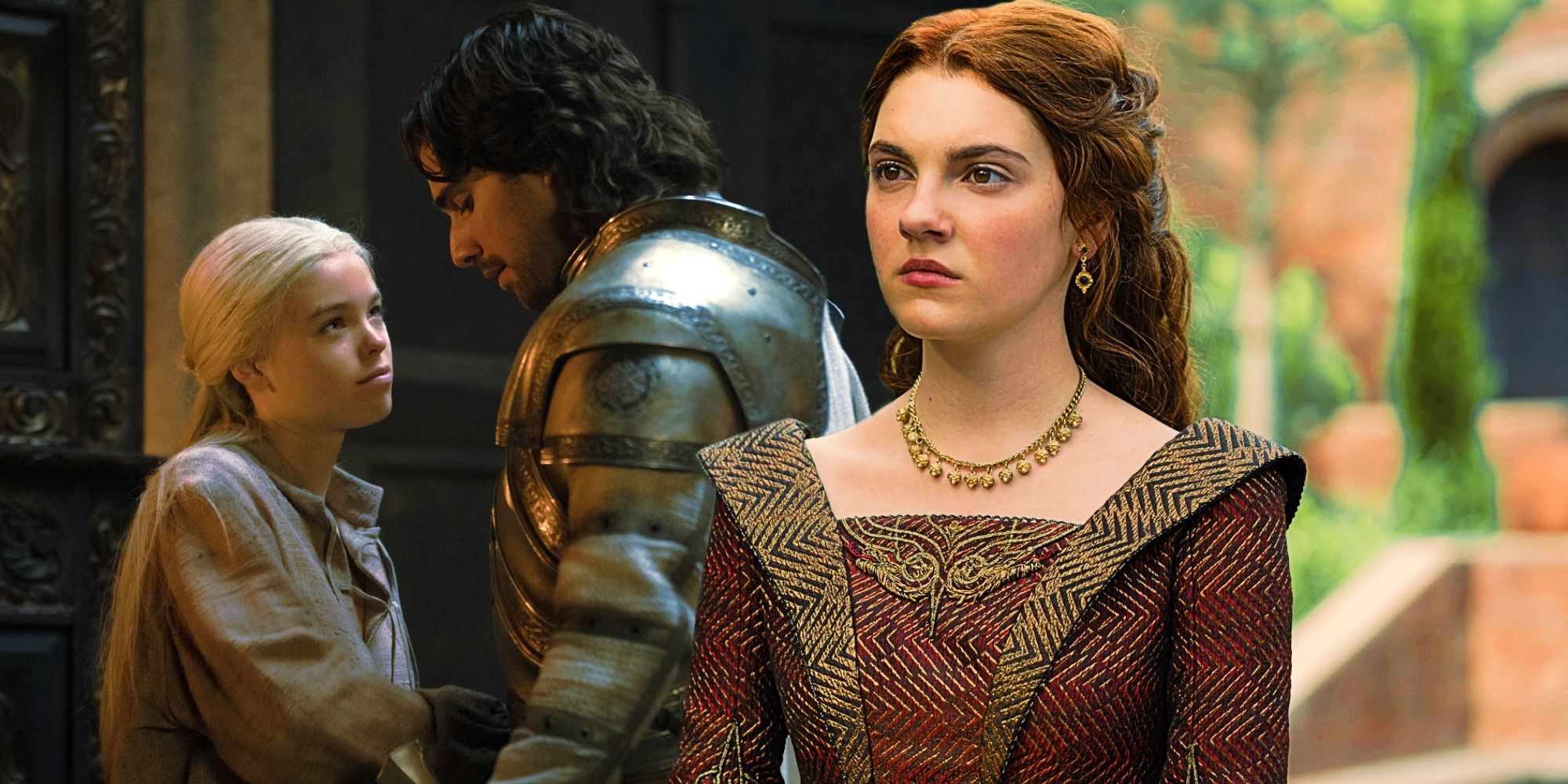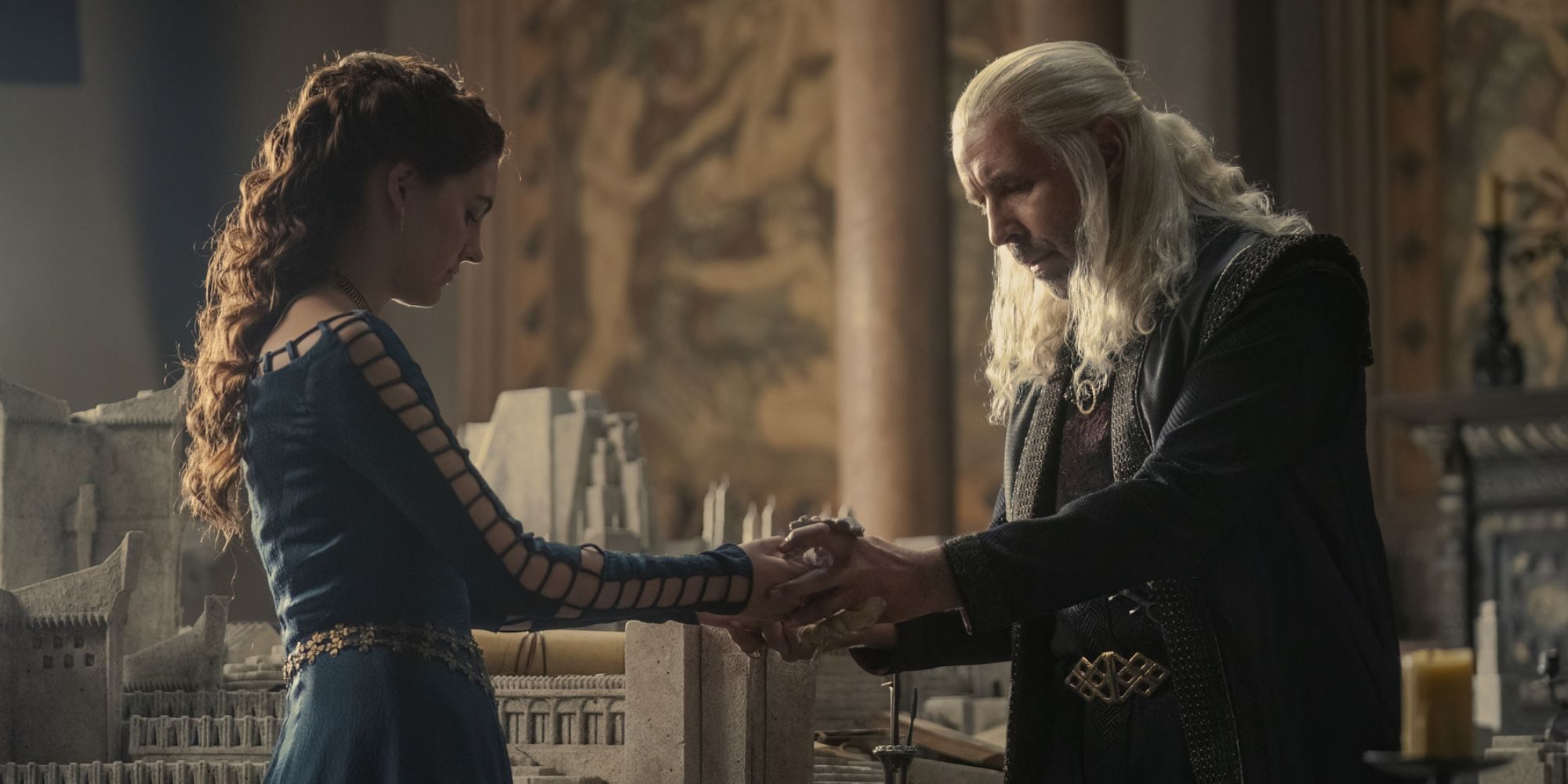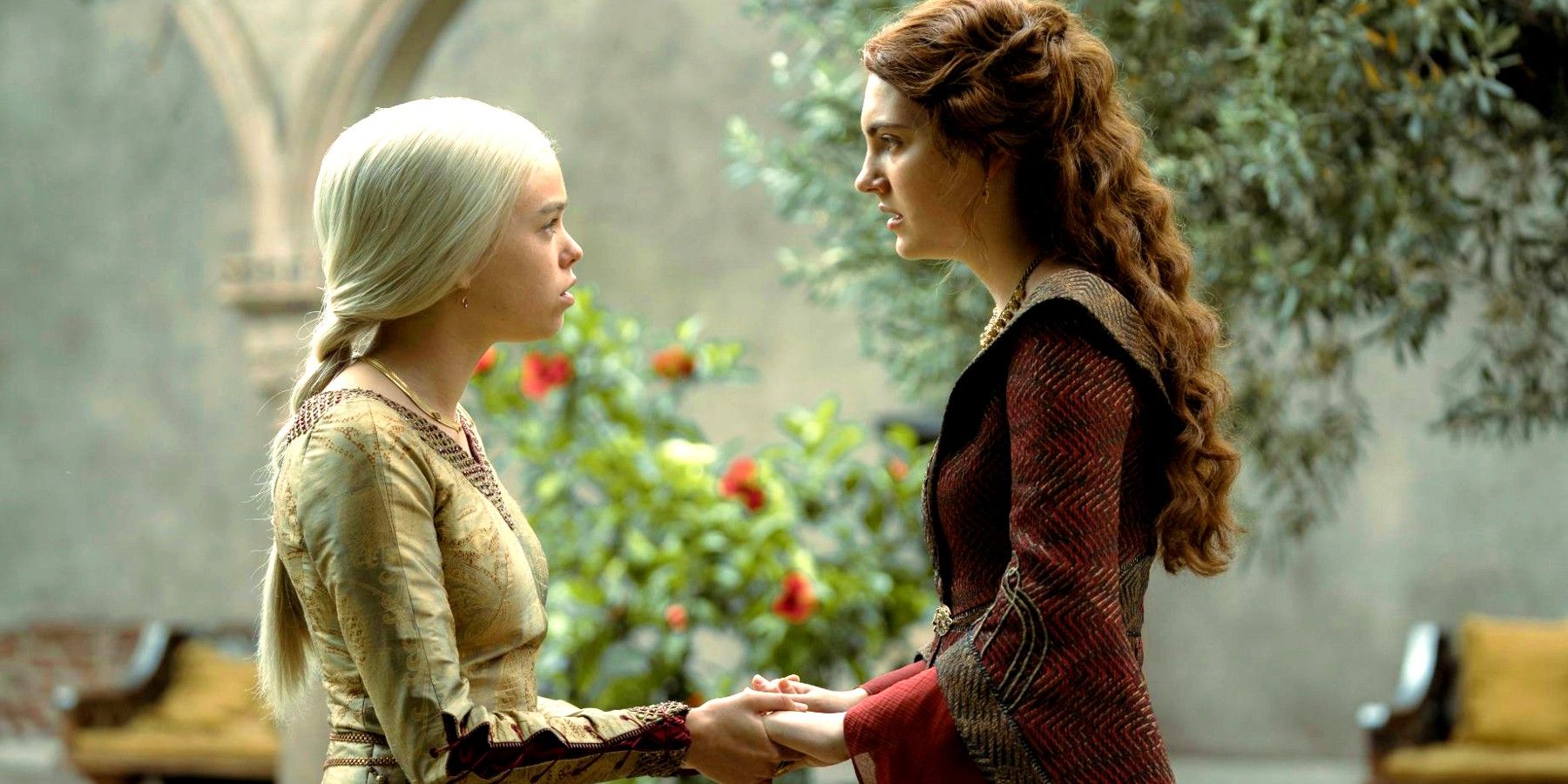WARNING: This article contains SPOILERS for House of the Dragon season 1, episode 4!Alicent Hightower’s story is made far more tragic in House of the Dragon, as emphasized by the sex scandals in episode 4. While Alicent was largely interpreted as a conniving villain in George R.R. Martin’s Fire & Blood book, she’s incredibly nuanced in House of the Dragon; her young portrayal by Emily Carey, in particular, is establishing her as a more sympathetic figure. The motivations behind her antagonistic actions weren’t as complex in the book, with House of the Dragon season 1 explaining the tragedy behind Alicent Hightower being a political pawn product of the patriarchy.
Alicent’s tragic upbringing is highlighted in the cutting between her House of the Dragon episode 4 sex scene with Viserys, and Rhaenyra’s with Daemon and Criston. While Rhaenyra is able to explore sex as a pleasure and become a dominant figure in these situations, Alicent has been taught that sex is a duty that must be endured without pleasure or satisfaction. Alicent is a major example of how the patriarchy in Westeros sees women as baby machines, with Alicent being forced to unemotionally lay with Viserys when he wants another heir instead of actually enjoying the act.
The contrast between Princess Rhaenyra Targaryen learning that sex can be just as pleasurable for women as it is for men and young Queen Alicent Hightower dreading it as a simple duty is quite brutal. Rhaenyra is able to take lovers and enjoy these parts of life, while Alicent has never been able to because of her young and passionless marriage to a man that she doesn’t truly love. Alicent’s angry reaction to the rumors of Daemon and Rhaenyra sleeping together in House of the Dragon episode 4 thus isn’t surprising, and emphasizes why her feud with Rhaenyra will grow to such a devastating point. By the House of the Dragon episode 4 ending, Alicent and Rhaenyra are headed on very different paths due to how the internalization or rejection of the patriarchy affects their interpretations of their roles as women, wives, mothers, and rulers in Westeros - and this framing allows Alicent to come across as a far more tragic, and far more sympathetic figure.
House Of The Dragon Episode 4 Suggests Alicent Never Wanted To Marry Viserys
After Rhaenyra returns from her tour without having chosen a husband, Alicent explains Viserys’ disappointment as well as her own. Alicent helped plan the tour to find Rhaenyra a match, with her anger hinting that this was a way to live out her dreams of courtship that she never truly experienced. As Alicent and Rhaenyra sit and talk on a bench, the Queen explains that she sometimes wishes she was still just Lady Alicent Hightower, a highborn girl who young knights would fawn over. Instead, Rhaenyra has this opportunity and – in Alicent’s eyes – throws it away because she can’t have the men that she really wants (Daemon and Criston).
Alicent’s jealousy further supports the notion that she never truly wanted to marry King Viserys, and that she only did so as her duty as the Hand’s daughter. She may not have realized what she was missing out on at first due to the intense “gift” of becoming queen, but House of the Dragon episode 4 makes it clear that marrying Viserys was hardly beneficial to herself. By seeing Rhaenyra have so much more freedom in choosing a match and having affairs, Alicent realizes her own imprisonment, in which her only purpose is to give more heirs to bolster House Targaryen and potentially rule the Iron Throne.
Why Alicent Is Really So Mad About Rhaenyra & Daemon
Similar to how Rhaenyra’s previous conception of sex was simply a pleasure for men but a duty for women in order to produce heirs, Alicent can’t begin to understand why Rhaenyra would jeopardize her reputation for it. The patriarchal society in which they live has hammered the idea into their brains that women like Alicent and Rhaenyra aren’t meant to enjoy sex, with the mortality rate of childbirth also making them more averse to the act. Alicent sees it as a necessary evil to bring forth children, while Rhaenyra now sees it as a form of liberation and a way to enjoy certain desires in life that so many women are bereft of. As such, the idea of Rhaenyra risking being disinherited from the House Targaryen family due to an irresponsible tryst with Daemon is inconceivable to Alicent.
Partially due to Alicent’s religious upbringing, the scandal of having her “maidenhood” questioned is severe in her mind. Additionally, Alicent’s anger about Daemon and Rhaenyra is based on jealousy that the Princess can have affairs and still get to become queen, whereas the Hightower name could be ruined if that happened to her. Rhaenyra not only gets to enjoy sex, but also doesn't face consequences that other might, as Viserys protects her by firing Otto and giving her moon tea to prevent pregnancy. While Alicent prioritizes sacrificing her own desires in House of the Dragon for the sake of “duty” and perception, Rhaenyra now has an entirely different conception of how she can perform her duties as heir without depriving herself of agency and passion.
New episodes of House of the Dragon release Sundays on HBO/HBO Max.
Want more House of the Dragon articles? Check out our essential content below...



